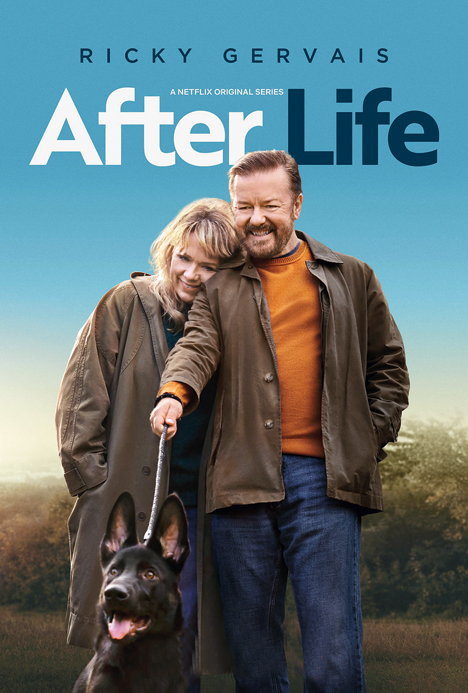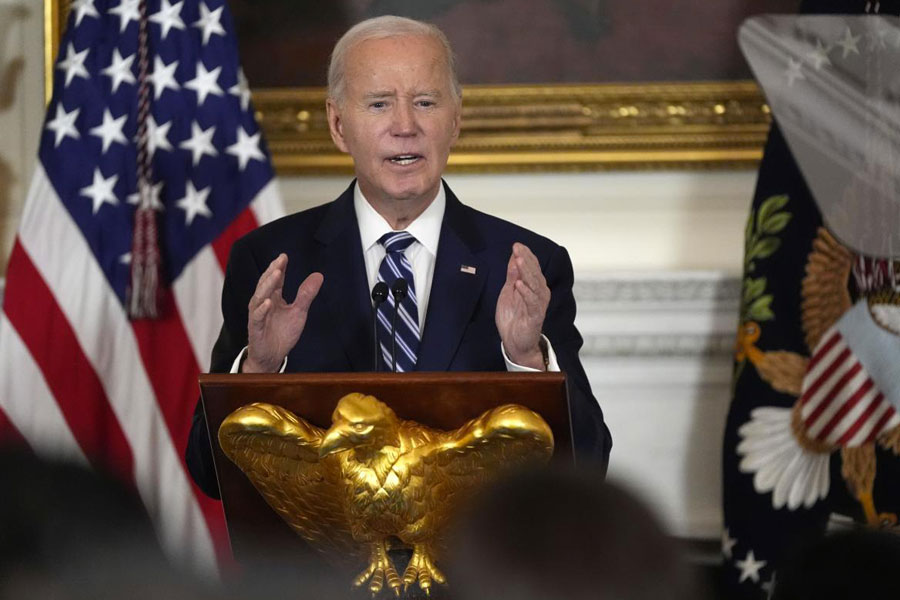Does a story always need to end up somewhere? Isn’t the journey of a narrative, much like life itself, sometimes more telling (and satisfying) than its denouement? When Season 1 of After Life dropped on Netflix a little over a year ago, it succinctly and sensitively combined humour and heart — as well as heartbreak — to explore loss, depression and grief. Written and directed by Ricky Gervais — the Office man who often lands up at the Golden Globes as show host and humiliates everyone he can lay his eyes on, with or without a drink in hand — After Life starred the comedian-actor as Tony Johnson, a journalist at the small-time Tambury Gazette, who is driven to a life of depression (and frequent suicide attempts) after losing his wife Lisa (Kerry Godliman) to cancer.
Even as Tony’s inner world collapses, rudeness, teamed with an acerbic tongue (he refers to strangers as “nosy c***suckers and deliberately hurts friends and family to mask his own pain) becomes Tony’s coping mechanism. Near and dear ones rally around to support him, but it’s only with his dog Brandy (whose presence in his life is the one thing that prevents Tony from slitting his wrists or emptying his bottle of sleeping pills) that the man isn’t a raging bull, plodding through his unremarkable job during the day and crying uncontrollably, drink in hand, while watching Lisa’s videos by night. “A good day is when I don’t go around wanting to shoot random strangers in the face... and then turn the gun on myself,” Tony says at some point in Season 1.
With a theme like this, After Life could have potentially ended up as a traumatic, miserable watch, but its win lay in the way it lodged a permanent lump in your throat and yet made you chuckle — and sometimes laugh out loud, often at the same time. A touching, and often brave, examination of hopelessness and grief, Season 1 benefited from an outstanding central act from Gervais, smartly shifting its tone from dark comedy to affecting drama, and making the pain at its core relatable.
Season 2, that dropped last Friday on Netflix, retains the tone and texture of the first season, even as it tries to show Tony trying to get on with life. He’s more affable towards people around him — he even takes two of his colleagues out to coffee after they have a rough day at work — and, in his own words, he’s striving to be “more zen” in life. But Tony can’t really move on — when he isn’t watching Lisa’s videos, he’s constantly talking about her — and that impacts the relationships that he shares with others, including Emma (Ashley Jensen), his dad’s caregiver, who Tony finds himself drawn to, but is unable to commit more, fearing it will be a disservice to Lisa’s memory.
Frankly, there isn’t much material for After Life to take giant steps in its narrative in Season 2. Tony goes about his work, mechanically at first and then with a little more empathy, landing up at Tambury doorsteps to document everything from a woman’s face job gone wrong to a
50-year-old man, dressed in a frock and sporting pigtails, suffering from a midlife crisis and believing that, in spirit, he’s an eight-year-old girl. Watch out for that hilarious tete-a-tete between Tony and a badass
104-year-old who is ever ready to stick out her middle finger at the world. It’s in scenes like this — as well as the sensitive yet uplifting conversations that Tony has with comrade-in-grief Anne (Penelope Wilton) — that Gervais reveals both the sensitivity and the depth of his writing.
Season 2, essentially, shifts to the other players who people Tony’s life. His ragtag team at work comes with its own set of problems, with his boss and brother-in-law Matt (Tom Basden) facing issues in his marriage. The delightful run-ins that Tony has with his postman Pat (Joe Wilkinson) bring on the laughs, while Tony’s daily conversations with dad Ray, who suffers from dementia, are life-affirming.
Season 2 may not touch many crests when it comes to story development, but it fulfils the promise that After Life has always come with — a healing and poignant journey of growth and growing up. The season, comprising six binge-able episodes, ends with the stage set for Season 3, and we are more than willing to sign up for yet another ride that combines cynicism and sentimentality and glues your heart right back after shattering it into a million pieces. With a joke, and more often, with a jolt or a jibe.










